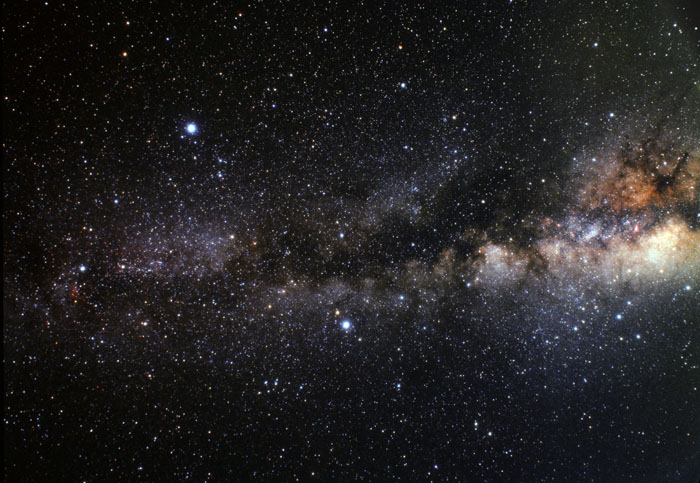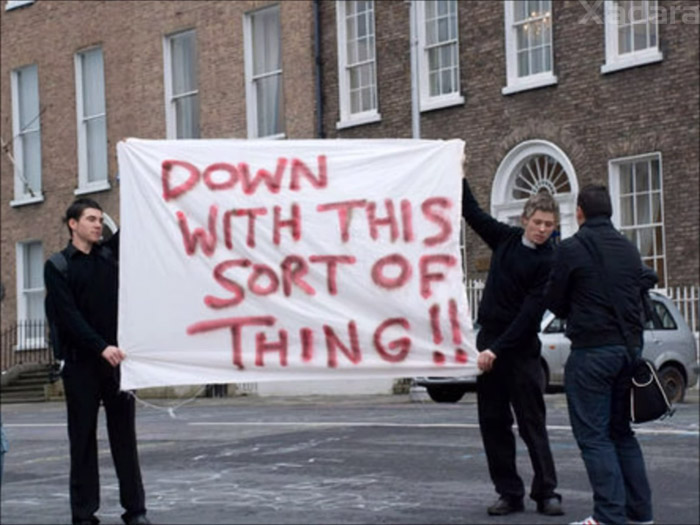It’s now the year 2020, and everyone, as they tend to be year after year, is celebrating the new year as some kind of chance for new beginnings as well as taking the time to look back over the past, and with this being a big round number everyone is also talking about how we’re “in a new decade” and how great this is, reflecting back on the past 10 years as well, already discussing the “last decade” as if they are scholars of history documenting a momentous time in the saga that is the human race.
There’s just one problem with this: When you actually think about how things work in basic counting, it makes no real sense.

Let’s be clear, because I know someone out there is going to try to use this idea against me — yes, a decade refers simply to a 10 year span of time. It can be any 10 year span of time, such as the Decade following World War 2 — it’s arbitrary in casual usage.
The problem is that people aren’t treating this like casual usage — they are treating it like some de jure, ruled upon status that 2020-2029 is a “new” decade and 2010-2019 was the “old” decade. That’s just not how it actually works — or, more correctly, how it should be treated.
With that out of the way, let’s look at something very basic — how you count. If I ask you to count to 10, how would you do such? 1, 2, 3, 4, 5, 6, 7, 8, 9, 10, right? Certainly so, I’d imagine.
However, if you were to ask me the same and I counted “10, 1, 2, 3, 4, 5, 6, 7, 8, 9” you would consider that wrong, I’m sure. Well, if it’s the same for basic numbers, why would it be any different for years? Why do we start with 0, or, 10, for a “decade” instead of 1?
The reason clearly comes from the nuance of how we discuss these periods, we say the “80’s” or “60’s” for those years 198X or 196X, which makes us want to include 1980 or 1960 in this, and thus excluse years like 1990 or 1970. However, if you follow the pattern you would see this makes no sense — 1961 would be year 1 in this, and 1970 would be year 10 of that decade period, as 1960 would be the 10th year of the 50’s.
Does it sound odd? Sure, but that’s because you’re not used to thinking about things this way — it’s ingrained in public consciousness to count the “causal” way, which would be fine if it wasn’t for the fact that we just don’t count and group things like that in any other way.
Additionally, consider this — let’s go to the first decade CE (formerly AD) — what would those years be? 1 CE, 2 CE, 3 CE, 4 CE, 5 CE, 6 CE, 7 CE, 8 CE, 9 CE, and 10 CE. Those would be the first decade on this scale. What would come next then? 11 CE, 12 CE, and so on to 20 CE. Move on up another 2000 years and what do you have? Where we are now.

This method of counting decades is called the “Ordinal” system, and it’s what I prefer to subscribe to. The other, common method, is called the “cardinal” system and would be fine were it not that it causes that first decade to be only 9 years long — thus, it’s not properly a decade!
That’s the main point — it breaks the very concept of a decade, and having a rolling count of them based on that first period. Consistency is key for this, to me, especially since people treat it as such an important of a thing. If it’s so critical, why then is it not kept consistent? I don’t care if the years in question were over 2000 years ago, claiming that our system should start on a zero year, thus making that first decade only 9 years completely defeats the reason behind it being important. It’s arbitrary at that point — or, I should say, more arbitrary than it already was!
Some people wish to defend the “casual” decade by saying “what about year Zero?” There is no year Zero. The calendars go immediately from 1 BCE (formerly BC) to 1 CE. Add 10 to it. At 100. 550. 2000. Whatever round batch of 10 year you add, you always wind up with that 1 left over — thus the most accurate way to count decades that should be celebrated in such a way is on the “1” year, not the “0” year. Yes, some act like this is some absurd comment being made by those in my camp, and is “obvious” but that’s just it — if it’s so obvious, then why don’t people consider it? Why then would some actually claim that’s why the decade is classed how it is commonly? I honestly think it’s simply a misunderstanding of how the numbers have always gone that people don’t want to correct, much like they tend not to accept being wrong about things.

Again, I reiterate there is no “official” classification to this — no hard rule which determines such — just different schools of thought. I, however, feel that consistency in such is key, and if people are going to care this much about the topic, then a little thought on the subject my allow them to conclude that a system which causes a “decade” in the past to only be 9 years long is a little absurd, given the universally accepted principle that a decade, the very concept worth celebrating in such a way, is a 10 year period. This makes since to me to be the better method, since each period is actually 10 years; hence my name for it, the “actual” decade.
I would imagine my points speak for themselves but if you disagree in a way that isn’t already discussed in the above, feel free to leave a comment.
As for me, I consider the “casual” decade to be a blend — the 90’s, for example were a period spanning 1990 to 2000. Yes, that’s 11 years, but consider that the 80’s for me also would be 1980-1990, again spanning 11 years but providing an overlap, accommodating both systems. I don’t use them to refer to “decades” but simply for year batches, reserving decade itself to refer to any 10 year span explicitly, for example the “decade after Chernobyl” being 1986-1995/1996 depending on the exact date in question.
It makes things easier for me that way. Now, if you’ll excuse me, I’ve got one more proper year of the 2010’s to enjoy before 2021 and the start of a new actual decade in our calendar.
